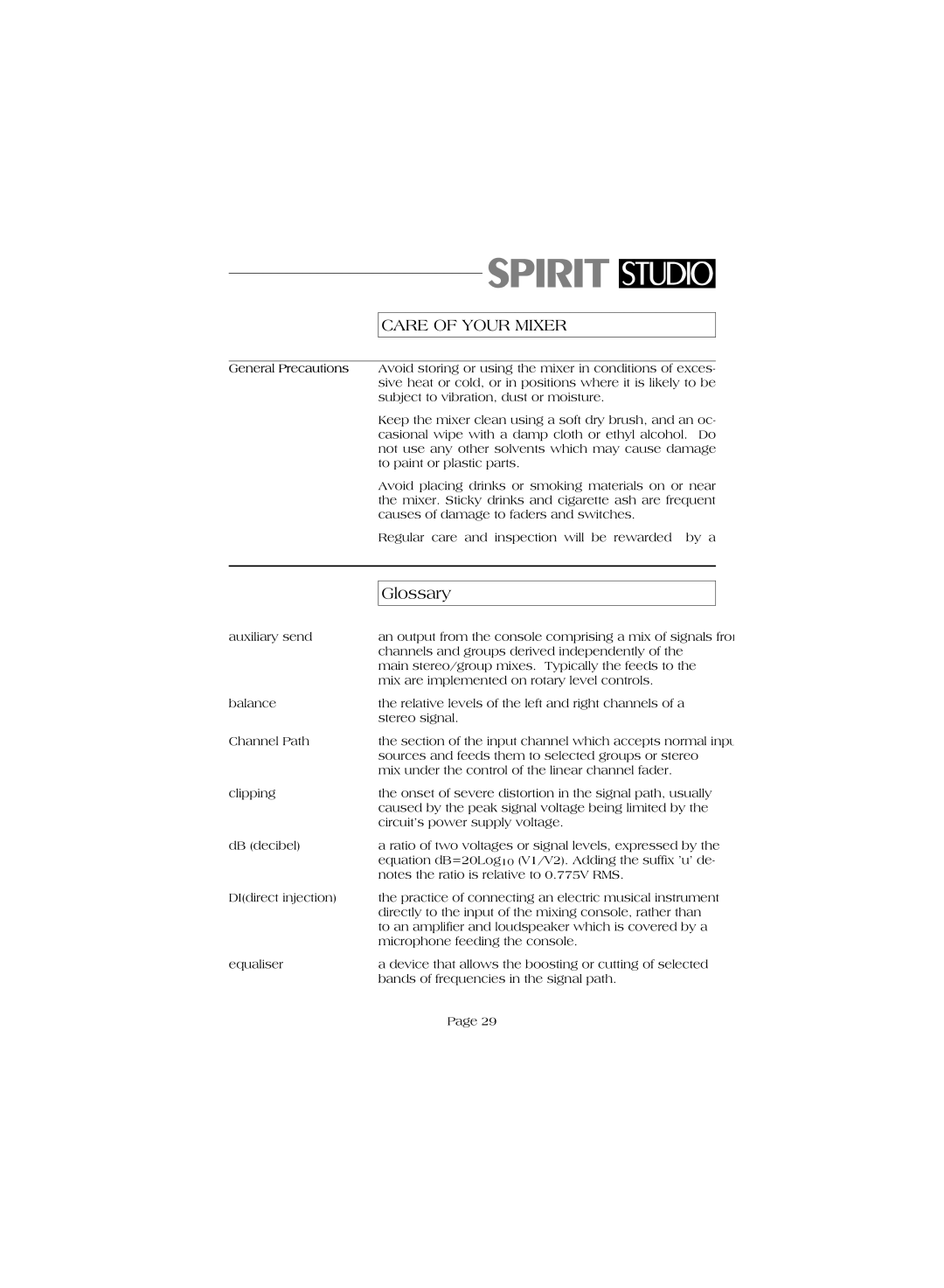
CARE OF YOUR MIXER
General Precautions Avoid storing or using the mixer in conditions of exces- sive heat or cold, or in positions where it is likely to be subject to vibration, dust or moisture.
Keep the mixer clean using a soft dry brush, and an oc- casional wipe with a damp cloth or ethyl alcohol. Do not use any other solvents which may cause damage to paint or plastic parts.
Avoid placing drinks or smoking materials on or near the mixer. Sticky drinks and cigarette ash are frequent causes of damage to faders and switches.
Regular care and inspection will be rewarded by a
| Glossary |
|
|
|
|
auxiliary send | an output from the console comprising a mix of signals fro | |
| channels and groups derived independently of the | |
| main stereo/group mixes. Typically the feeds to the | |
| mix are implemented on rotary level controls. | |
balance | the relative levels of the left and right channels of a | |
| stereo signal. | |
Channel Path | the section of the input channel which accepts normal inpu | |
| sources and feeds them to selected groups or stereo | |
| mix under the control of the linear channel fader. | |
clipping | the onset of severe distortion in the signal path, usually | |
| caused by the peak signal voltage being limited by the | |
| circuit’s power supply voltage. | |
dB (decibel) | a ratio of two voltages or signal levels, expressed by the | |
| equation dB=20Log10 (V1/V2). Adding the suffix ’u’ de- | |
| notes the ratio is relative to 0.775V RMS. | |
DI(direct injection) | the practice of connecting an electric musical instrument | |
| directly to the input of the mixing console, rather than | |
| to an amplifier and loudspeaker which is covered by a | |
| microphone feeding the console. | |
equaliser | a device that allows the boosting or cutting of selected | |
| bands of frequencies in the signal path. | |
Page 29
